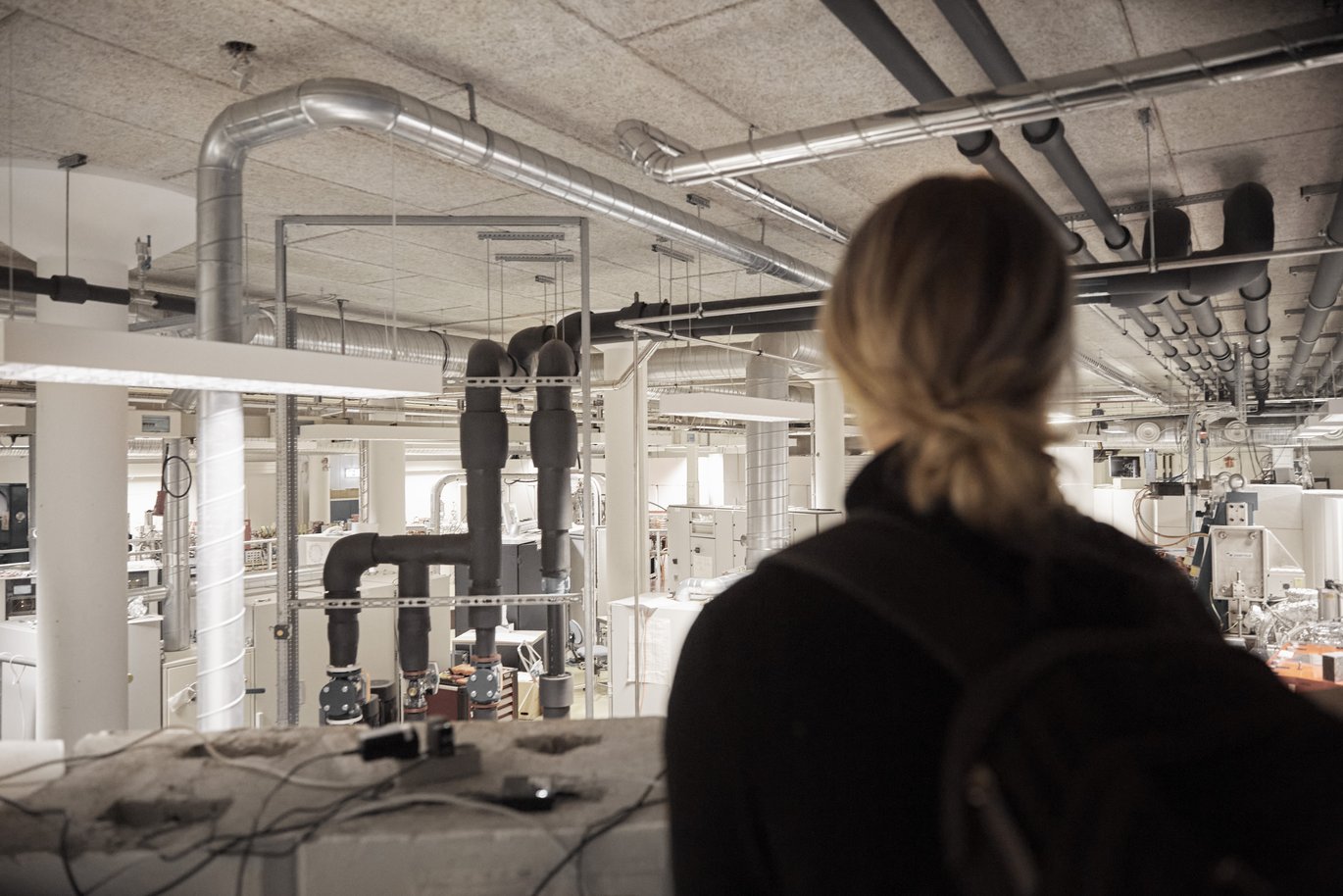ASTRID2 to be switched off to save power
More energy-saving measures will be launched at Natural Sciences following the latest announcements about the university's finances. The Department of Physics and Astronomy will focus on research facilities, light sources and ventilation to achieve significant reductions in power consumption.

The ASTRID2 particle accelerator will be switched off in selected periods to cut energy consumption from the accelerator by 50 per cent up to the end of the year.
This is just one of the initiatives launched by the Department of Physics and Astronomy to help reduce total energy consumption at the Faculty of Natural Sciences and Aarhus University.
Besides ASTRID2, the high-performance computing facility, Grendel, will run at reduced power. This will help cut energy consumption by 20 per cent up to the end of the year. Similarly, there are proposals to look at light bulbs and ventilation to further reduce energy consumption.
"It's no surprise that we have to do something about energy consumption. You can see the problem in other countries and here in Denmark. Having said that, it’s impossible not to be concerned when critical research equipment like ASTRID2 has to be shut down. More specifically, in order to complete as much research as possible, we will have to focus on fewer research projects and select lower-risk projects. This means that we’ll lose much of the enormous benefit we get from ASTRID2 to conduct high-risk ground-breaking research from the perspective of the international research scene," says Søren Ulstrup, associate professor at the Department of Physics and Astronomy, who uses ASTRID2 on a daily basis in his materials research.
For Ulrik Ingerslev Uggerhøj, head of department at the Department of Physics and Astronomy, the decision has naturally entailed making significant reductions in energy consumption, but he is also aware that reductions should not lead to too many problems for research.
"Clearly it’ll hurt research, but I don’t want it to be too painful. Employees at the department have played a positive role, and have been very understanding about the need to contribute to our shared solution," he says.
Not without challenges in the longer term
The department has a plan for the rest of the year, in which we have tried to time the periods where ASTRID2 is to shut down, around holidays and other times with less activity in an attempt to minimise disruption from the energy savings.
Even though Søren Ulstrup is confident, he still anticipates challenges if the needs for energy-saving measures become more extensive and continue for too long.
"Research stands still when equipment is switched off. This makes it difficult to deliver what we have promised external funders in applications. It also causes problems for our PhD students and postdocs, who may find it difficult to get the results they need. They have two to three-year contracts and are under extreme time pressure, because they have to generate results during these short appointments. ASTRID2 also attracts many external research groups. There’ll be fewer of these and therefore we’ll lose much of the strong international profiling and weaken our network," he says.
Søren Ulstrup's own research also depends on using ASTRID2 in his experiments. For this reason, he cannot start new research in the periods when the particle accelerator is switched off.
"Right now, we need to get an idea about what we can do in the periods when it’s shut down. We’ve got data for the experiments we’ve done up to now. The PhD students, our postdocs and myself can spend time looking at them, analysing them and seeing if there are any new angles in them. If necessary, we can also apply for time on particle accelerators in other countries, and then go there to do our experiments. However, it’d just be a great pity not to use all the infrastructure and new research equipment we’ve built here. But fortunately, we won’t be closed down all the time, so we can still do some research," he says.
it is expected that ASTRID2 and Grendel will be included in the energy-saving measures In the new year too, but the expected reductions in energy consumption are likely to be reduced to just 25% and 15%, respectively, in order to ensure that research does not suffer irreparable damage in the long term.